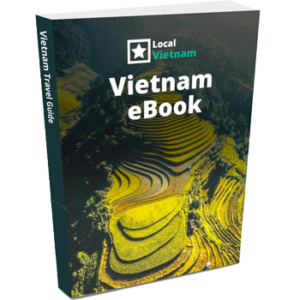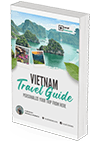Food safety in Vietnam is of very important for all travelers. With its vibrant street food culture and diverse culinary offerings, Vietnam has some of the best food in the world. However, to fully experience the local cuisine without compromising your health, it is crucial to be aware of food safety practices. This traveler’s safe eating guide will provide you with essential tips and insights to navigate the culinary landscape.
Food safety tips
1. Check reviews
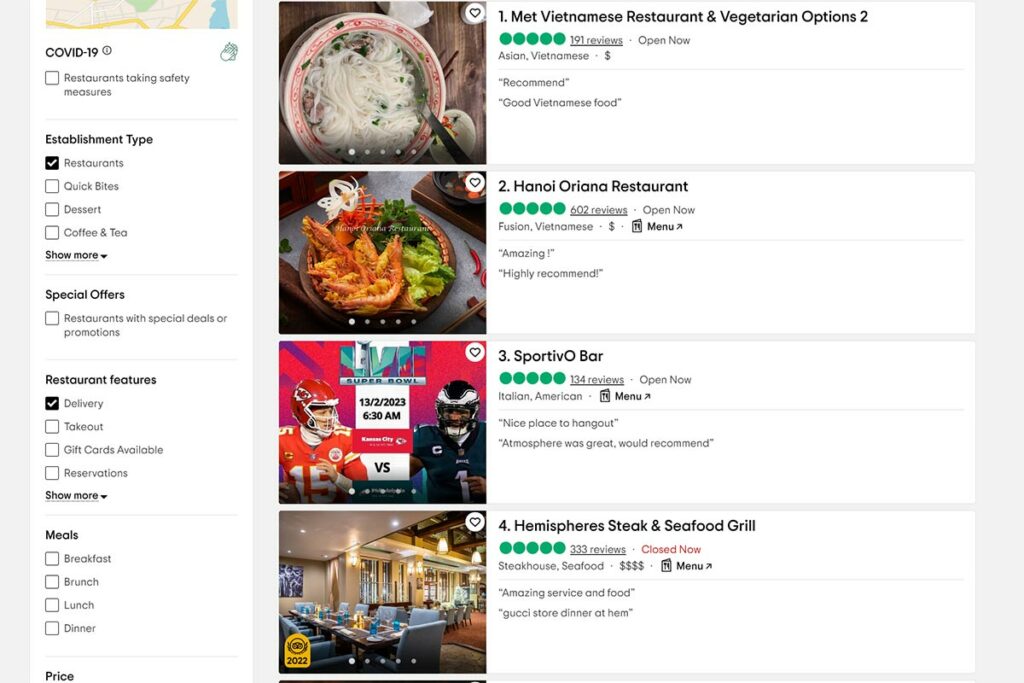
Before dining at a restaurant, check online reviews from both local and international sources. These reviews can give you a good indication into the cleanliness and safety of the restaurant.
2. Be cautious with extensive menus
Restaurants with a wide variety of dishes, especially those with Western-style options, may have a higher likelihood of storing a large quantity of food in their refrigerators. This can increase the risk of dishes made from ingredients that have been stored for too long. Consider dining at local restaurants or establishments with smaller menus, as they often prioritize freshness and turnover of ingredients.
3. Opt for popular street food spots
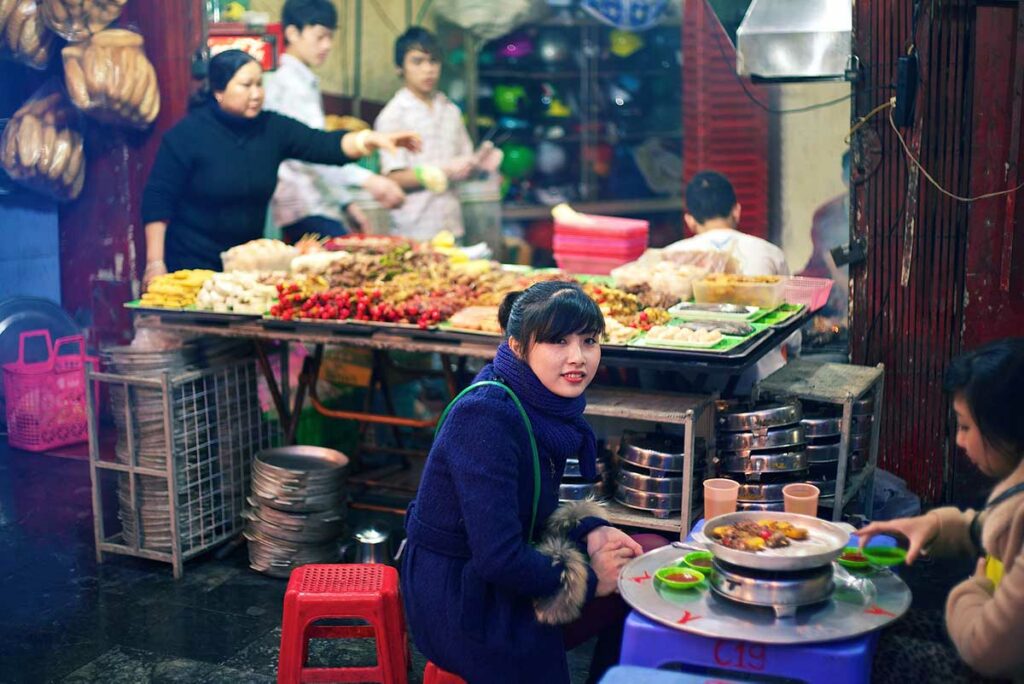
If you notice a street food vendor attracting a lot of locals, it’s generally a positive indication of good food quality. Additionally, busy restaurants and street food stalls tend to have a continuous flow of food, ensuring that ingredients are fresh and not left sitting for extended periods.
4. Observe basic hygiene practices
Take a moment to assess the hygiene practices employed by the food establishment. Look for clean food preparation areas, proper handwashing facilities for staff, and overall cleanliness in the dining area. This helps ensure that basic hygiene standards are being followed, reducing the risk of foodborne illnesses.
5. Choose cooked and hot foods
Opt for thoroughly cooked and piping hot foods. Heat kills bacteria, so hot meals are generally safer to consume. Avoid raw or undercooked dishes, such as raw seafood or rare meat, as they may pose a higher risk of foodborne infections.
6. Wash fruits and vegetables
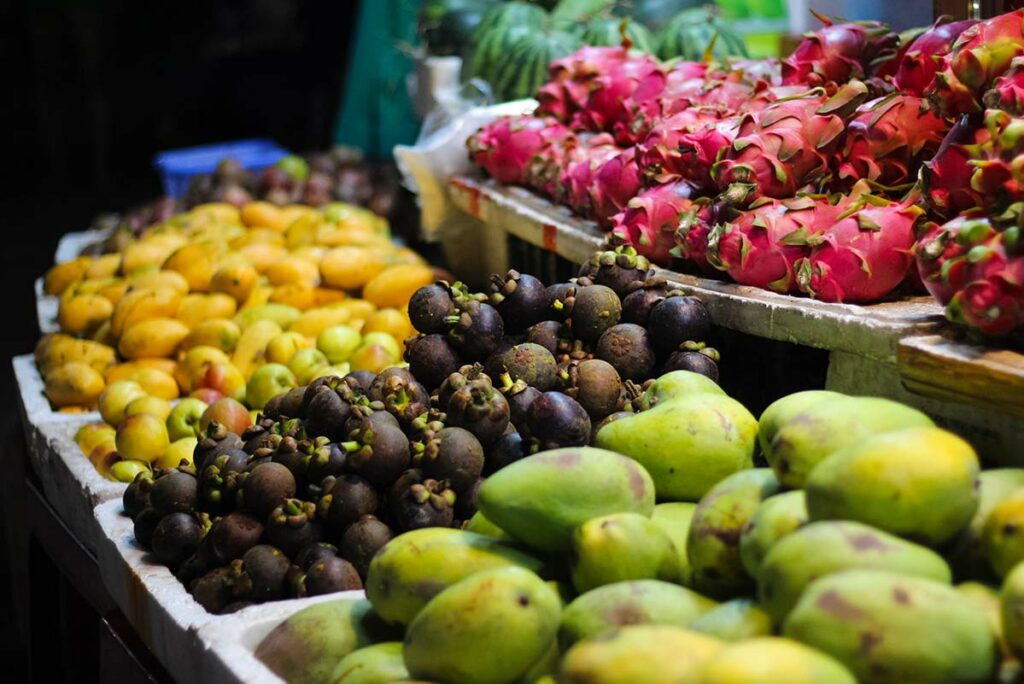
When consuming fresh fruits and vegetables, rinse them thoroughly with clean water or peel them before eating. This practice helps remove potential contaminants, such as dirt or pesticide residue.
7. Maintain personal hygiene
To prevent contaminating your own food, ensure that your hands are clean before eating. Carry hand sanitizer with you and use it regularly, especially before handling food.
8. Trust your instincts
If something doesn’t feel right about a particular food establishment or if you have doubts about the safety of the food being served, it’s best to err on the side of caution and find an alternative dining option.
9. Bring medication for travelers’ diarrhea
As a proactive measure, it’s advisable to pack some over-the-counter medication specifically for travelers’ diarrhea.
Food tours in Vietnam
Going on a food tour in Vietnam can be the perfect solution if you find yourself a bit hesitant to try new food or even trying street food. Understandably, you may have food safety concerns, but a food tour offers a fantastic opportunity to explore the culinary delights of Vietnam with confidence.
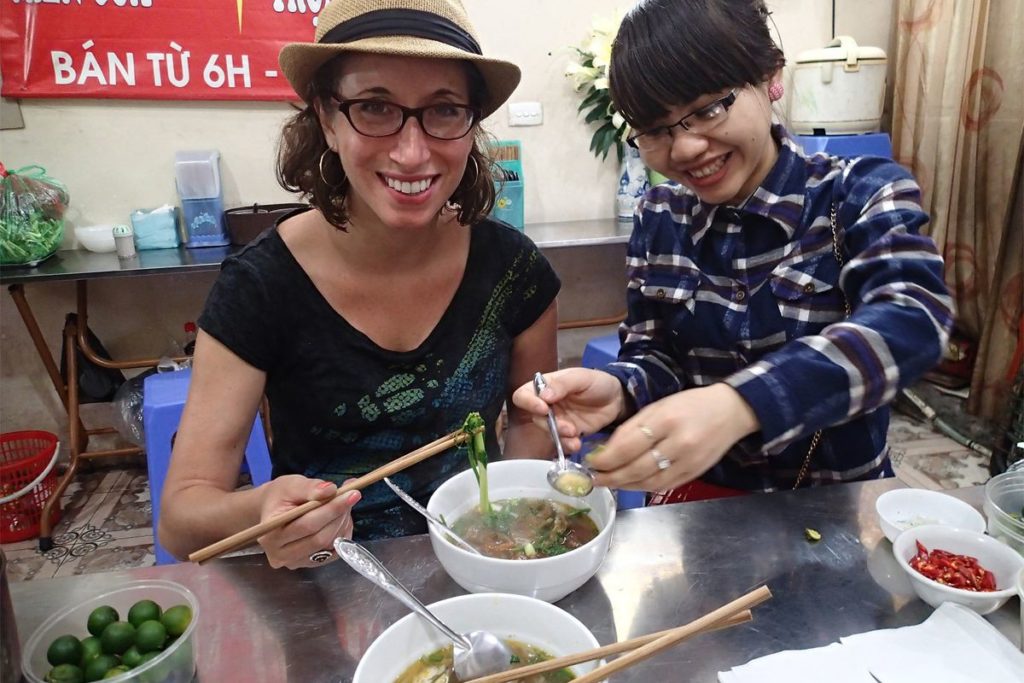
Accompanied by a knowledgeable guide, you’ll be taken to safe and reputable eateries where you can sample delicious Vietnamese cuisine. Besides having a safe dining experience, a food tour allows you to immerse yourself in local culture, discover authentic hidden gems, and learn about the culture of Vietnam. In fact, street food tours have even earned a spot on our list of best things to do in Vietnam!
Discover the wonders of Vietnamese cuisine and check out our food tours in Vietnam here.
Drinking water
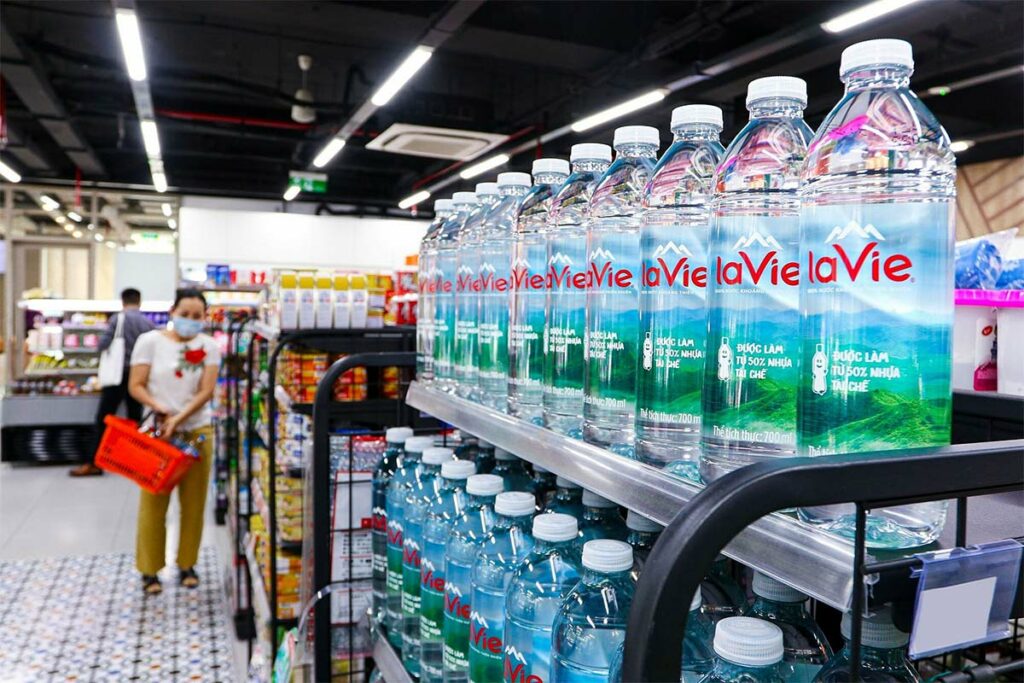
- Stick to bottled or filtered water: It’s essential to stay hydrated, but be cautious about the source of water. Drink bottled water or water that has been properly filtered and boiled. Avoid consuming tap water or using it to brush your teeth to minimize the risk of waterborne diseases.
- Wash fruits and vegetables: When consuming fresh fruits and vegetables, rinse them thoroughly with clean water or peel them before eating. This practice helps remove potential contaminants, such as dirt or pesticide residue.
For more detailed information and additional tips on water safety in Vietnam, refer to our article on tap water in Vietnam.
Travelers diarrhea
Travelers’ diarrhea is considered one of the most common travel-related illnesses worldwide. The change in food, water, and hygiene practices can sometimes lead to stomach problems in travelers, including diarrhea.
If you find yourself experiencing travelers’ diarrhea in Vietnam, there are several steps you can take to make the symptoms less and for a faster recovery:
- Stay hydrated: Drink plenty of fluids, such as bottled water, to prevent dehydration caused by diarrhea.
- Rest and take it easy: Give your body time to recover by getting sufficient rest.
- Avoid certain foods and beverages: Temporarily steer clear of spicy, greasy, or unfamiliar foods that may make your symptoms worse. Also, avoid consuming alcohol and caffeinated drinks, as they can contribute to dehydration.
- Use medications: Antidiarrheal medications like loperamide can help control symptoms.
- Seek medical assistance if needed: If your symptoms are severe, persistent, or accompanied by additional concerning symptoms, it’s advisable to seek medical attention. A healthcare professional can provide appropriate guidance and may prescribe antibiotics in certain cases.
